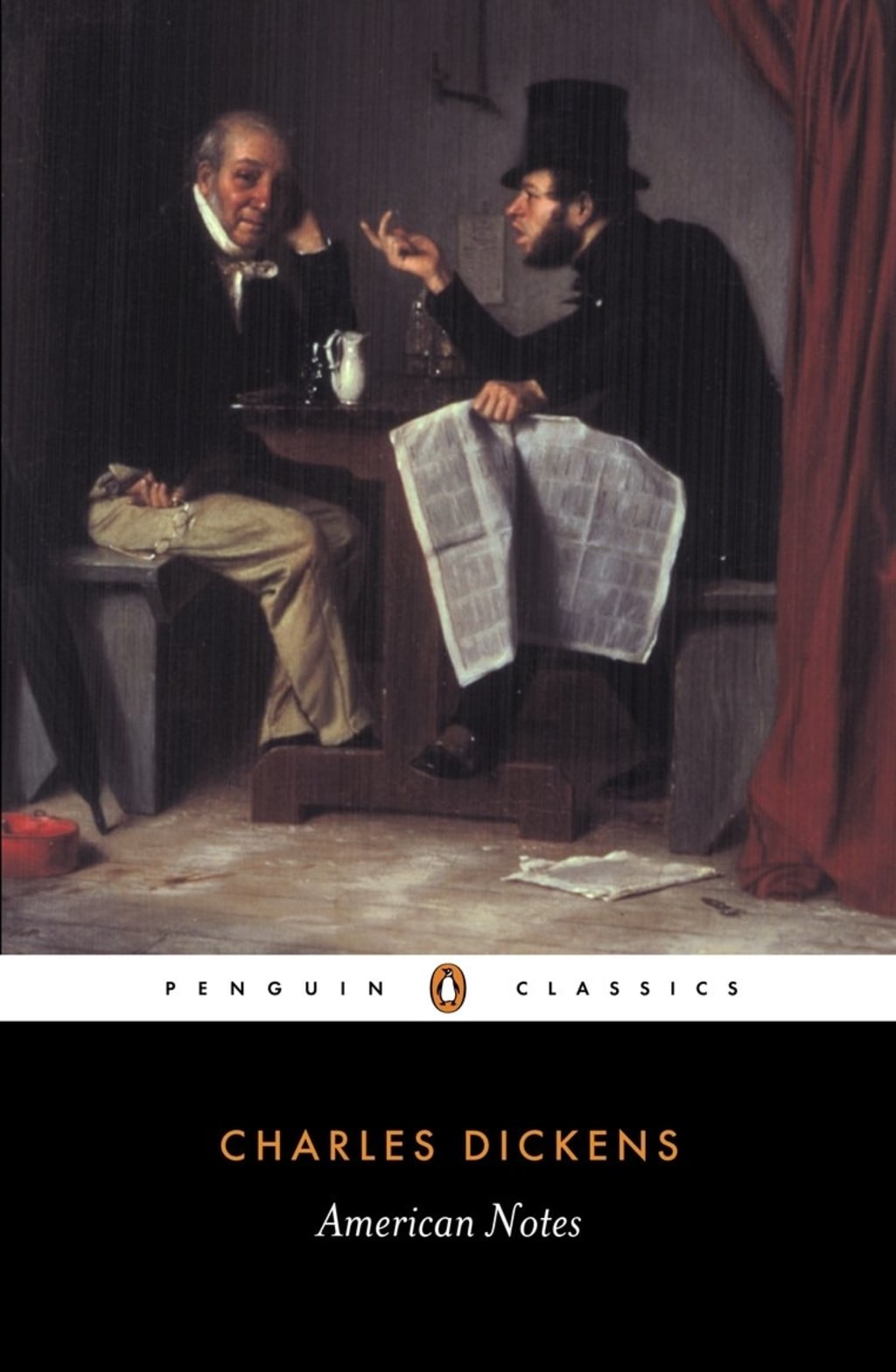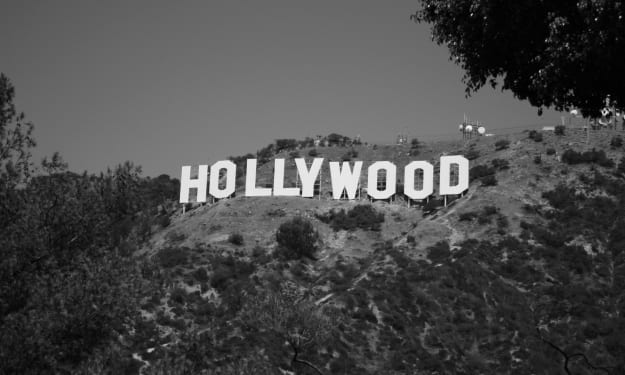"American Notes" by Charles Dickens
First Impressions (Pt.19)

Charles Dickens’ “American Notes” is a travelogue detailing a trip Dickens took to North America between the months of January and June in 1842. This was also part of the inspiration for his later writing of “Martin Chuzzlewit”. Charles Dickens and his wife sailed for North America just a month before Dickens’ 30th birthday and even though he was initially in good spirits, the journey on sea was no so positive. He would travel America by coach, by steamboat, and even writing a whole chapter on his journey on the American Railroad. Dickens could not forgive America for it having a continued use for slavery and comments about the treatment of black people in America as being incredibly horrid. He gives reasons and observations for major flaws in the society of the USA and makes analyses on everything from violence to prisons, hospitals and schools. Often enjoying the picturesque of the country, he comments on liking Boston the most in terms of sight and New York, it seems, the least.
However, when investigating deeper into the culture and opinions of America that are reflected in their broken judicial system, Dickens often get angry and even criticises the treatment of the prisoners as being somewhat inhumane if yet, they have had no crime proven against them. Another thing that Dickens seems to find intolerable is the lack of personal hygiene that the Americans are said to have. Public health and personal cleanliness are considered luxuries in this country and Dickens again finds it inhumane, unjust and absolutely disgusting that children, let alone adults, would have to live in these conditions and be expected to grow and survive. The lack of progression for the working class and the behaviour of the ‘worthless’ gentry is often to blame, Dickens suggests. The primitive behaviours and manners of the American public are also of concern to Dickens who finds their manners again, intolerable. He finds the way in which they habitually spit upon the ground and the lack of want to keep the streets clean from dirt and muck a nightmare and wishes not to stay any longer than he has to upon the streets observing this horror.
The final thing that Dickens observes is that the working class and poorer folk are in fact, smarter, more experienced and often more interesting than the gentry. When speaking to the gentry, Dickens often comments negatively about their inferior intellect, but when speaking to the prisoners in Philadelphia who are of the poorer class and are even of different races and nationalities, Dickens comments on their interesting stories, their often incredible lives that they have led and their will to survive since suicide in prisons back then was fairly rare.
Dickens’ first impression of America is a very visual one as he has not yet touched the observations that he will come to in order to turn them sour. He states that upon first glance, America seems almost joyous and continues to praise the country for its impressive and often conflicting looks. Dickens explains how he ‘strained’ his eyes to look closer and here is where the reader sees the conflict of images between the positive and the negative coming through the prose:
“The indescribable interest with which I strained my eyes, as the first patches of American soil peeped like molehills from the green sea, and followed them, as they swelled, by slow and almost imperceptible degrees, into a continuous line of coast, can hardly be exaggerated. A sharp keen wind blew dead against us; a hard frost prevailed on the shore; and the cold wind was most severe. Yet the air was so intensely clear, and dry, and bright, that the temperature was not only endurable but delicious.” (p.31)
The way in which the reader sees Dickens’ view of America is conflicting, but the positive image is solidified by his observation and analysis of the sight of Boston during the daytime in which he states that the city is beautiful and is possibly his favourite throughout the entire text. However, the conflicting idea is still there since Dickens continues to talk about the appearance of the city over its values and therefore, the reader in nothing but suspicious of what Dickens really means throughout his descriptions:
“The city is a beautiful on, and cannot fail, I should imagine, to impress all strangers very favourably. The private dwelling-houses are, for the most part, large and elegant; the shops are extremely good and the public buildings are handsome. The State House is built upon the summit of a hill, which rises gradually at first, and afterwards by a steep ascent, almost from the water’s edge. In front is a green enclosure called the Common. The site is beautiful: and from the top there is a charming panoramic view of the whole town and neighbourhood. In addition to a variety of commodious offices it contains two handsome chambers: in one the House of Representatives of the State hold their meetings; in the other the Senate. Such proceedings as I saw here, were conducted with perfect gravity and decorum; and were certainly calculated to inspire attention and respect.” (p.35)
However, when Dickens speaks of the upper class of Boston society (of which there are many), he is super critical of their behaviour and thus, his image of the city may be tainted by the acts of the gentry. Dickens’ attitude towards the prison system in Boston is also hyper-critical and often he makes allusions to either hell or to the fact that the prison system and the judicial system are so broken that they are now beyond repair and are doomed to treat the prisoners with an inhumane sense of injustice for all time. He states about the broken judicial system:
“I cannot help doubting whether America, in her desire to shake off the absurdities and abuses of the old system, may not have gone too far into the opposite extreme; a city like this, where each man knows the other, to surround the administration of justice with some artificial barriers against the “Hail fellow, well met” deportment of everyday life…The fruits of the earth have their growth in corruption…” (p.65-6)
Apart from the Bostonian judicial system, Dickens is most angry about the treatment of prisoners who have yet no crime proven against them in the holding cells of New York. It is here where he becomes most critical, stating that New York may be picturesque, but not clean and it may be a nice city, but not equal - and in fact, it is a just place, but then again it is not just at all:
“What! do you thrust your common offenders against the police discipline of the town, into such holes as these? Do men and women against whom no crime is proved, lie here all night in perfect darkness surrounded by the noisome vapours which encircle the flagging lamp you light us with, and breathing this filthy and offensive stench! Why, such indecent and disgusting dungeons as these cells would bring disgrace upon the most despotic empire in the world! Look at them man, you, who see them every night, and keep the keys, Do you see what they are? Do you know how drains are made below the streets and wherein these human sewers differ, except being always stagnant?…Are people really left all night, untried in those black sties? - Every night. The watch is set at seven in the evening. The magistrate opens his court at five in the morning. That is the earliest hour at which the first prisoner can be release and if an officer appear against him, he is not taken out till nin o’clock or ten. But if any one among them die in the interval, as one man did, not long ago? Then he is half-eaten by the rats in an hour’s time, as that man was; and there an end.” (p.102-3)
To conclude, Dickens presents his view of America at first, mostly based on his experience of the prisons and their prisoners. From New York and Philadelphia, it is clearly visible how Dickens’ view of American society depletes over the course of the chapters based mostly on cleanliness or the tragic treatment of other human beings. The graphic language contradicts the initial impression we get from Boston and the landing in America, which are scenes of near-serenity. This is not just presenting conflict in America, but presents an ignorance in which America during the 1800s was more concerned with the appearance of its situation and independence rather than its justice towards the society it was attempting to raise as the land of the free. Dickens observes the injustice and not only criticise it, but gives it an appearance of being contradictory to what America stands for to the rest of the world, how it looks and the meaning of its ideals, policies and the way in which it treats those who have yet to be proven guilty.
Citation:
Dickens, C (2004). American Notes. 2nd ed. UK: Penguin Classics
About the Creator
Annie Kapur
200K+ Reads on Vocal.
English Lecturer
🎓Literature & Writing (B.A)
🎓Film & Writing (M.A)
🎓Secondary English Education (PgDipEd) (QTS)
📍Birmingham, UK






Comments
There are no comments for this story
Be the first to respond and start the conversation.